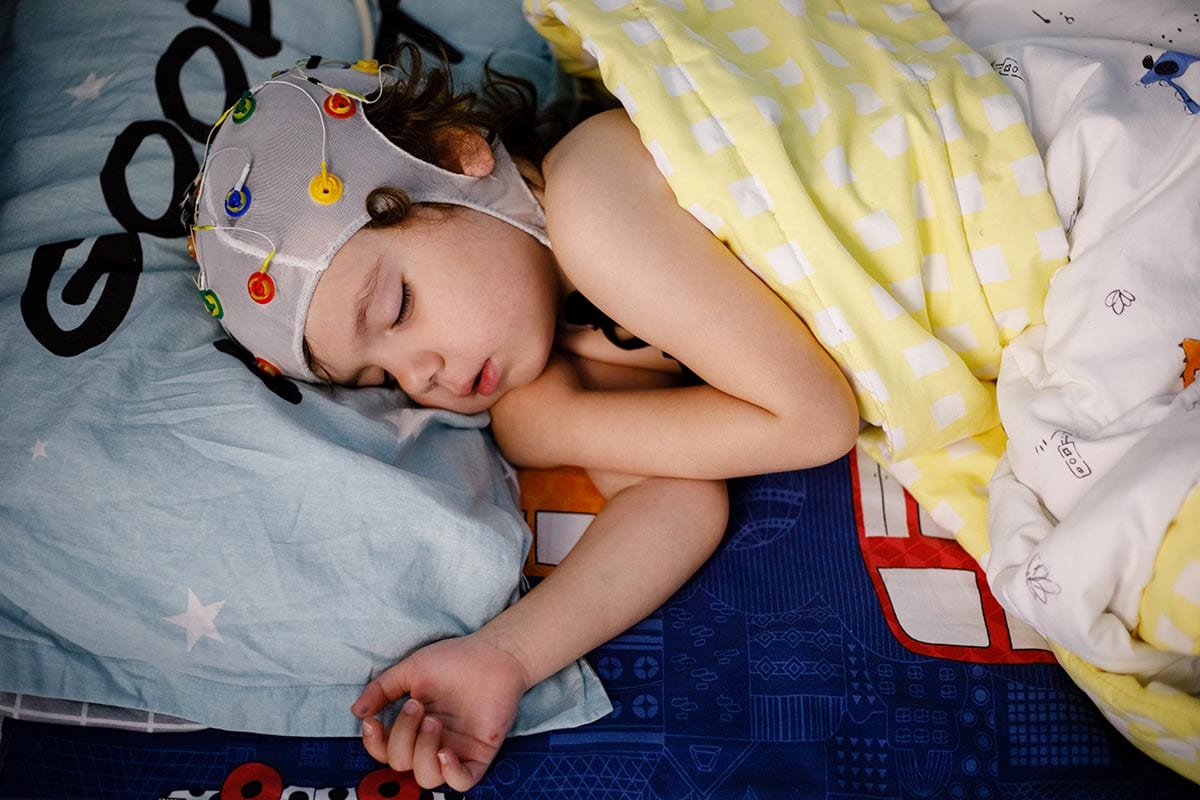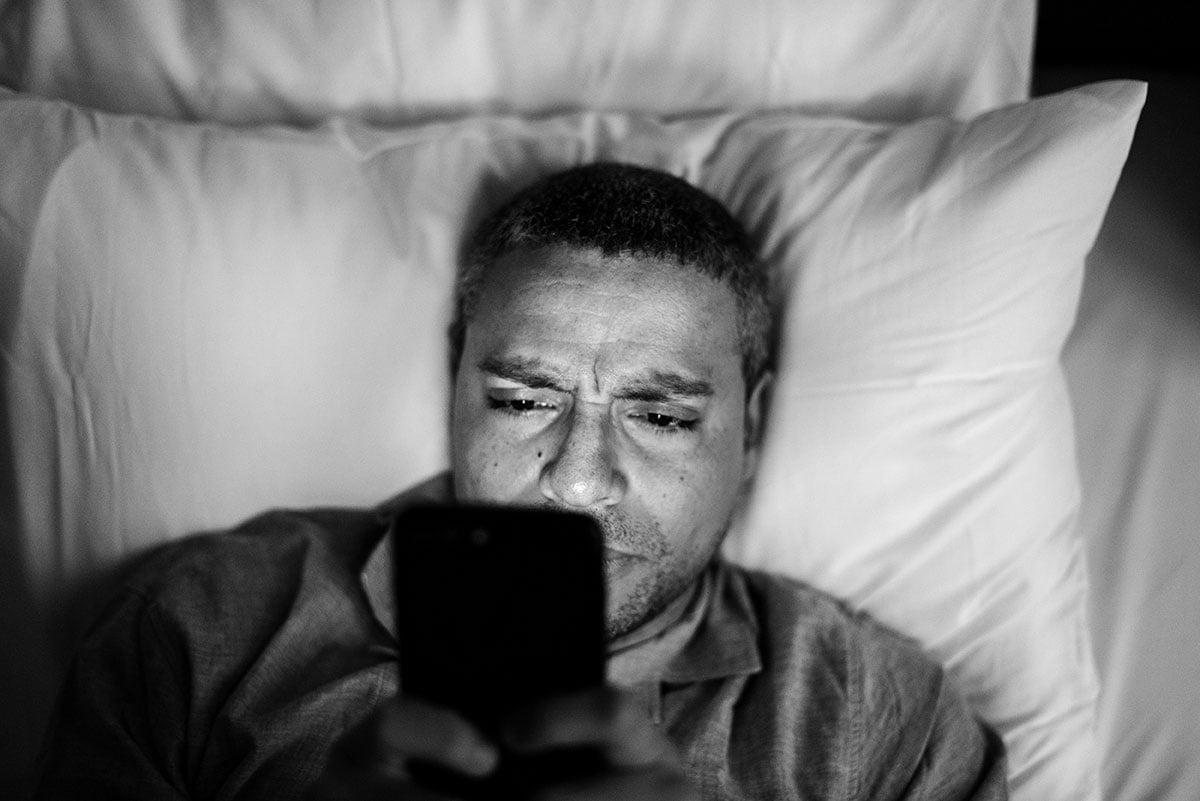Sleep is one of the most important things in life. If you’re not getting enough sleep, it can affect your mood and mental health as well as your physical wellbeing. CBD is a popular treatment for insomnia because it promotes refreshing REM sleep that reduces excessive daytime sleepiness.
CBD helps me achieve a good night’s sleep, and I hope it will help you too!
What is CBD?
CBD (cannabidiol) is a cannabinoid found in cannabis plants. For legal purposes, cannabis plants are divided into two categories, depending on levels of the cannabinoid THC: marijuana (high THC) and hemp (low THC).
The CBD you buy comes from hemp and is therefore not psychoactive.
Cannabis plants contain over 500 active ingredients called flavonoids, terpenes and cannabinoids, which all have different benefits and qualities.
The most well-known cannabinoids are cannabidiol (CBD) and tetrahydrocannabinol (THC). THC is the cannabinoid that gives a high or buzz from cannabis use.
CBD – unlike its counterpart THC – does not produce any psychoactive effects. Instead, CBD has been reported to help with chronic pain, anxiety, and sleep disorders.
Cannabinoids are natural chemical compounds that target receptors in the central nervous system to influence certain functions. The specific effects depend on the type of cannabinoid and how it interacts with different systems in your body.
How does CBD work?
Although a huge amount of research is being carried out on cannabis, many mysteries about what CBD does and how it works still remain unanswered. Scientists know that cannabinoids interact with proteins and cells in our brains and bodies within the endocannabinoid system (ECS) but there are many other receptor sites in the body that they could act on as well.
The Endocannabinoid System and Sleep
The endocannabinoid system plays an important role in regulating mood, appetite, and sleep as well as immune response, hormones, fertility, body temperature and stress management.
Our body’s sleep-wake cycle is a delicate balance that is essential for survival, moving us between rest and wakefulness throughout the day.
The endocannabinoid system influences sleep by regulating this process: inhibiting the desire for sleep when necessary. It is integral to maintaining a regular sleep-wake cycle. The CB1 receptor switches between inducing sleep and stimulating wakefulness, depending on hormonal cues such as light exposure or food intake.

The benefits of using CBD: why use it?
There’s a lot of confusion about cannabis products like CBD oil and the legality of recreational marijuana. But there is growing awareness about their potential health benefits. Apart from CBD for insomnia, here are six other medical uses that are backed up by evidence: both what we know so far, and areas where research is still being carried out:
1. Anxiety relief
CBD has been shown to have lasting effects on anxiety. Research suggests CBD might cause receptors in the brain to react differently when serotonin is being released, resulting in improved mood and a reduction of PNS (peripheral nervous system) activity related to stress and fear.
This study showed that a 600mg dose of CBD oil can help people with severe forms of social anxiety by:
- reducing stress
- diminishing physiological manifestations of anxiety, such as an accelerated heart rate.
- improving symptoms of PTSD (post-traumatic stress disorder)
- helping induce sleep

2. Anti-seizure
Over the past few years, cannabidiol has been studied for its effectiveness in treating several neurological conditions, including epilepsy. Epidiolex is a cannabis-based anti-seizure drug made by GW pharmaceuticals and licensed across Europe and by the U.S. Food and Drug Administration (FDA) to treat seizures in children caused by manage two rare and severe forms of childhood-onset epilepsy ― Dravet syndrome (DS) and Lennox-Gastaut syndrome (LGS). as well as tuberous sclerosis complex .
3. Neuroprotective
Some research has shown that CBD use might help slow or reduce the progression of diseases like Alzheimer’s and Parkinson’s disease.
It has been reported that CBD may act as a neuroprotector, binding to receptors in the brain that are involved with reducing inflammation and controlling pain. CBD also helps promote neurogenesis, which is the formation of new neurons as well as the growth of neural synapses.
4. Pain relief
CBD oil may also help manage pain. Studies have shown that cannabis can offer some benefits following chemotherapy treatments, and other pre clinical data sponsored by the National Institute of Health looked at the role of cannabis in relieving symptoms caused by:
- chronic pain
- arthritis
- multiple sclerosis (MS)
- spinal cord injuries
- muscle pain
5. Anti-acne
Some studies suggest CBD oils may reduce inflammation throughout the body. This may help in maintaining healthy sebum levels within the skin’s sebaceous glands and mean a decreased likelihood of acne breakouts.
Before you consider CBD oil for acne, make an appointment with your dermatologist. More scientific inquiry is needed to evaluate the potential benefits of CBD for acne treatment.
6. Cancer treatment
Human clinical trials on the benefits of CBD for cancer treatment are few and far between. There is an investigation into the use of THC and CBD in combination with chemotherapy as a type of brain cancer, but results have been inconsistent.
In 2016, scientists discovered that cannabinoids show promise in the fight against cancer after finding that these compounds inhibited the growth of many types of tumor cells in test tube and animal models.
Although more research is needed, evidence suggests that cannabinoids may have a role in cancer treatment.

What causes poor sleep?
Hundreds of things can affect your sleep quality. Poor sleep habits (sleep hygiene) like irregular sleeping patterns or consuming too much caffeine, alcohol, and nicotine, can lead to poor sleep quality.
Another common issue is the use of phones and screens before bed. Numerous studies have shown a link between nighttime screen use and the amount of time it takes to fall asleep. Putting away all screens an hour before bedtime is a simple solution to this issue.
Stress and anxiety
Poor mental health can contribute to poor sleep quality.
Chronic health conditions
Certain chronic health conditions negatively affect sleep quality and quantity. These include lung disease, asthma, acid reflux, renal disease, cancer, fibromyalgia, and pain. Unfortunately, as with stress and anxiety, poor sleep patterns can make symptoms worse.
Sleep Apnea
Sleep apnea is a condition characterized by temporary lapses in breathing during sleep, resulting in waking up gasping or choking. Sleepiness and lack of energy are two common complaints among sufferers.
Undiagnosed sleep disorders
Sleep disorders, when left untreated, often evolve to affect daytime life. For example, individuals suffering from periodic limb movement disorder (PLMD) experience involuntary jerking movements in their legs while they sleep, resulting in reduced sleep quality and fatigue. Individuals with narcolepsy also often suffer from poor sleep quality and experience daytime fatigue.

Sleeping issues in babies
It’s normal for newborns to wake up several times throughout the night. Fortunately, most infants will start sleeping through the night after they turn six months old..
When an older infant is experiencing more disturbed sleep, it may be due to discomfort with teething, being sick, hungry, or having gas problems.
How CBD can help treat insomnia
Many studies have been carried out investigating the use of CBD as a sleep aid. Whilst these results are inconclusive, there is a huge amount of anecdotal evidence for the sleep-inducing properties of cannabis, and in fact it has been used as such for tens of thousands of years.
CBD has been shown to inhibit the neurotransmitter adenosine, which is involved in regulating sleep-wake cycles. CBD can also increase levels of serotonin and dopamine, two other chemicals that are involved with mood regulation.
It also promotes a healthy mind by reducing anxiety and stress and boosting mental clarity–all essential for getting a good night’s rest
CBD may also reduce pain, which can interfere with a night’s rest. Not surprisingly, people who suffer from pain often experience more difficulty falling asleep
Safety and side effects of CBD for insomnia
CBD products are very well tolerated and generally considered to be fairly safe, however they can have some side effects, which include:
- Anxiety (linked to THC content of full spectrum products)
- Changes in appetite
- Changes in mood
- Diarrhea
- Drowsiness
- Dry mouth
- Nausea
How to use CBD oil for insomnia
CBD is best when taken orally. While there are many options like gummies, vape pens, capsules, and lotions available for sale on the market today, CBD oils are by far the most popular because they can be ingested in a variety of ways to improve health

Adding CBD oil or flowers to food or beverages
You can add CBD oil or flowers to any beverage or recipe if you keep the cooking temperature low. There are thousands of great recipes online.
CBD can be mixed into drinks such as coffee, tea, and even smoothies
CBD oil under the tongue (sublingual)
For this method, take a drop of CBD oil and place the liquid below your tongue. Hold it beneath your tongue for thirty to ninety seconds before swallowing it. CBD taken this way enters the bloodstream through the mucous membrane, bypassing the digestive system and liver.
CBD salve
With no shortage of creams and balms infused with CBD, there are simple ways to make your own homemade CBD topical. All that’s needed are a few common ingredients such as olive oil, coconut oil, or shea butter, along with any essential oils or natural extracts you may want to add.
Precautions when using CBD for sleep
Pregnant or breastfeeding women:
Pregnant or breastfeeding women should consult with a doctor before taking CBD.
Children:
Make sure you consult your pediatrician first and follow the instructions provided. As your child’s growth and body proportions vary, you should recalculate their dosage every few months to ensure that they are getting the optimal amount for them.
It’s important to know the recommended dose.
Liver disease:
People with liver disease might want to vape CBD oil to avoid extra strain on the liver. Vaping produces little smoke, making it a discreet inhalation method. It is also one of the quickest and most efficient ingestion methods with most people feeling the effects within a couple of minutes.
CBD oil can also be taken sublingually to bypass the digestive system and liver.

Ways to encourage healthy sleep
Though you do not have control over what factors may interfere with your sleep, some habits can encourage a better night’s rest.
Maintaining a sleep routine and sticking to it can be easier said than done, especially for those experiencing sleeping difficulties, but a nighttime routine or ritual will help prepare your body for sleep.
- Maintaining a sleep routine and sticking to it can be easier said than done, especially for those experiencing sleeping difficulties, but a nighttime routine or ritual will help prepare your body for sleep.
- Manage anxiety and stress.
- Eating and drinking right is important.
- Avoid use of screens before bed time
- Add exercise to your day by getting up and moving.
- Limit daytime naps.
- Create a sleep-friendly environment.
Dosage recommendations
When it comes to taking CBD for insomnia, the dosage is essential. If you don’t get a recommendation from a medical professional about the correct dose, start small with 10 – 20 mg per day. After a week, increase this amount by 5 mg each time until you feel that it has effectively treated your symptoms.
You may want to keep track of the dosage and frequency of CBD intake. Write your findings down in a notebook or on your cell phone.
Conclusion
Cannabis has been used since ancient times as a sleeping aid and the anecdotal evidence for its efficacy are strong.
The research is still in its infancy, but as an extract of cannabis, CBD seems to be a promising natural treatment for insomnia. More studies are being done on the effects of using CBD for sleep disorders and we’ll keep you up-to-date with our blog as new findings come out.
In the meantime, if you’re interested in trying this yourself, it’s important to do your own research first so that you can make an informed decision about what might work best for you.
We hope these insights help! If there’s anything else we can do please let us know – we want everyone to get their best night’s rest possible without drugs or side effects!
Further reading
Full Spectrum CBD: What is it, and is it worth trying?







